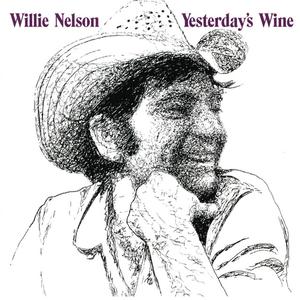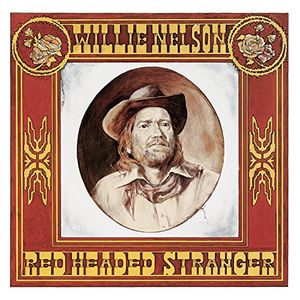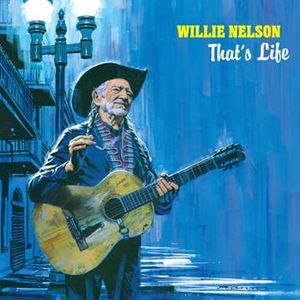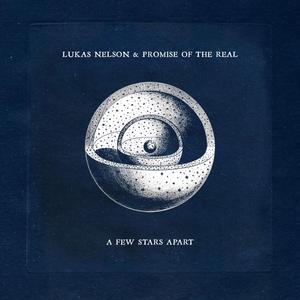
Willie Nelson - Stardust
By Jof Owen
Stardust managed to capture something almost childlike in its simplicity; Nelson’s gently picked guitar drawing out the melancholy from the songs and filling the space around it with a wistful sense of the slow passing of time. The whole album is just a step away from being a collection of really fucking sad Muppets songs.
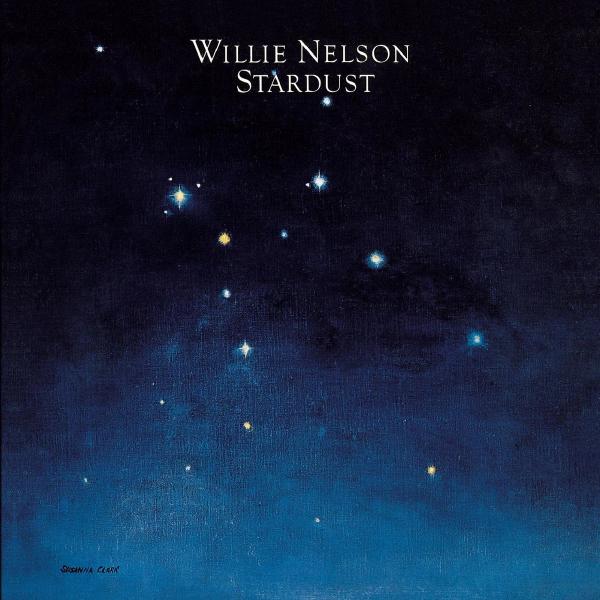





Link copied

If Red Headed Stranger and Wanted! The Outlaws had established Willie Nelson as a certain type of country-folk troubadour, then he was about to completely confound any expectations his audience might have had of him with Stardust; country music’s greatest ever curveball.
Willie Nelson had already cut the exquisite divorce-themed concept album Phases and Stages down in Muscle Shoals with Jerry Wexler – as well as Shotgun Willie and the country gospel album The Troublemaker in New York - by the time 1974’s Red Headed Stranger came around and almost elevated country music to the level of conceptual art.
Wanted! The Outlaws – his country supergroup compilation album with Waylon Jennings, Jessi Colter and Tompall Glaser - followed a year later, becoming the first country album to sell over a million copies. Nelson seemed to have finally found his place in the country music scheme of things at last; on his own terms and without having to compromise or chase after whatever carrots Music City was stringing up at the time.
All in all, things were moving along pretty nicely for Nelson as the decade drew to a close. He was living in a condo complex down in Malibu, spending the summer days jogging along the beach and reminiscing about all the songs he’d grown up with that had inspired him when he was starting out; in particular the influence of Frank Sinatra. By the time his Lefty Frizzell covers album, To Lefty From Willie, came out in 1977, he’d already decided that he wanted the follow up to to be a collection of American pop standards.
As legend has it, on one of those Malibu morning jogs, Nelson bumped into his neighbour Booker T. Jones, the legendary bandleader of Booker T. & The M.G.’s, and the two of them got to talking. Nelson had already presented Colombia Records executive Rick Blackburn with the idea of an album of pop standards, but Blackburn had been less than enthusiastic. Not to be disheartened, Nelson was still turning the idea over in his head when he met up with Jones, so he asked him to do an arrangement of ‘Moonlight In Vermont’ for him as an experiment.
Sitting on the second side of Stardust, the breezy jazz standard - with its unconventional haiku lyrics and complete lack of rhyme - became the seed from which the album grew. Nelson loved the arrangement and asked Booker T. Jones to produce a whole album with him.
From there, Nelson picked his 10 favourite pop songs from his childhood and approached producer Brian Ahern to use his Enactron Truck recording studio, which was parked outside his home in the Hollywood Hills. Ahern set up a makeshift studio with cables leading from the console of the truck to the living room of his own house where the band were playing, working on the songs over as few takes as possible; all except for harmonica player Mickey Raphael, who was in the tiled bathroom shower for his takes.
Recorded over 10 days in the December of 1977, Stardust managed to capture something almost childlike in its simplicity. Nelson’s gently picked guitar drew out the melancholy from the songs and filled the space around it with a wistful sense of the slow passing of time. The whole album is just a step away from being a collection of really fucking sad Muppets songs.
The title track, originally written by composer Hoagy Carmichael in the 1920s, has been recorded more than 1500 times over the last century, but Willie Nelson still managed to draw something out of it that had never been there before.
These are more than just recordings - Nelson is completely reimagining the Great American Songbook on Stardust; finding something deep in the hearts and souls of these songs that no other singer had found up until then or since. This isn’t Rod Stewart or Michael Bublé bashing out some big band stocking fillers for your nan in the run up to Christmas. Willie Nelson’s reinterpretations are profoundly beautiful and filled with an intimate sense of sadness and loss.
Another Carmichael composition, ‘Georgia On My Mind’ – made famous by Ray Charles – became one of two singles from the album to get to number one, along with the sprightly ‘All Of Me’, and deservedly won Willie Nelson the Grammy for Best Male Country Performance. Even on the album’s brighter moments, there is something sparse and inherently sad about the way Nelson and his band reimagine the songs. The whole album ends up having a decidedly end-of-the-world feel to it; like the soundtrack to a picnic on a sunny day in the pre-apocalypse.
Kurt Weill’s wonderfully melodramatic ‘September Song’ is wrung dry for every last drop of emotion, but Nelson never lets sentimentality take over. It’s simple and thoughtful and ends up just being desperately sad again, but without any of the theatrical weltschmerz that usually comes along with the song.
What makes Stardust so special is both Nelson’s affection for these standards and also his quiet disregard for them. He treats the songs with the same kind of loving care as a four-year-old does his favourite teddy bear: squeezing them too tight and carrying them with him everywhere he goes; dragging them through muddy puddles and bramble bushes along the way. Then he sits them up, baggy and threadbare and coming apart at the seams, as if they are the most magical and precious things on earth, because that’s what he believes them to be.
They feel like more like world-weary companions than they do simple compositions, as he takes the songs with him on his heroic quest towards some imagined idea of what the great sound of America could possibly be. He takes his listeners along with him on that journey too; people who never would have heard of Irving Berlin or George and Ira Gershwin or Hoagy Carmichael if it wasn’t for the love that Willie Nelson had for them.
The first time I heard Stardust I must have been about eight years old, but I hear it completely differently now. It’s a record almost built on the idea of time passing; on the way a song and what it means to you can change over the course of your life. Willie Nelson changed and grew older with these songs at the same time as the songs themselves changed and grew older with him.
Time can make the simplest of songs sound sad when you listen back to them – as you fill them up with all the thoughts and feelings that you’ve sewn into their patchwork of words and melodies over the years. It’s what gives every great song its weight and it’s what makes Stardust still sound so beautiful after all this time.
10/10
Willie Nelson's Stardust was released via Columbia. The record is part of an exclusive boxset from Holler's friends at Vinyl Me Please. You can purchase this below:

Items featured on Holler are first selected by our editorial team and then made available to buy. When you buy something through our retail links, we may earn an affiliate commission.,
For more reviews from VMP's Willie Nelson Anthology, see below:


